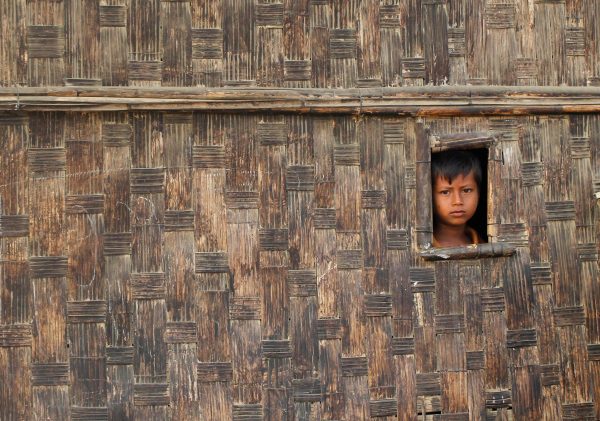Sadly, in the years since, Myanmar’s path to a more entrenched democracy that represents its diversity has faced big obstacles. Pluralism, freedom of expression, ethnic equality and peace have all taken a back step. The worn-out excuse that democratic progress is being held up by the military’s presence in politics holds true only up to a point. The main responsibility rests with the NLD and Aung San Suu Kyi.
In the 2015–20 term the division of power became more clear-cut, with the NLD government gaining responsibility over many portfolios while the military retained its hold over the three security-related ministries. Granted that the civil-military relationship remained uneasy, the military generally stayed out of ‘civilian’ or overtly political business. In the ‘peace process’, whose failure would be hard to refute, the military has been less than helpful. But on intertwined issues such as federalism, and ethnic relations per se, the NLD could have been more constructive. NLD governance has left many ethnic parties and armed organisations alienated.
With the military too, the all-important National Defence and Security Council has never had a single official meeting in this term of office, due to Aung San Suu Kyi’s unwillingness.
The NLD has shown its true colours over its five-year term and it’s not a pretty sight. The public’s view on this will be clearer in the coming election. But Myanmar’s diversity will be reflected too. Gone are the days of the collective expression of will seen in the drive to unseat the military-linked parties in 2015.
The election results this year are much more likely to conform to ethno-territorial lines. In this election Myanmar’s ethnic nationalities will likely vote along ethnic or tribal lines. The ‘Burman–non-Burman’ divide has never been more apparent. The Burman political centre is no different. It is a mistake to assume Burman social or political cohesion. All of Myanmar’s mainstream political parties up to now have only had a unitarist, monist outlook on social and ethnic issues surrounding the state. This has been the case since the 1930s.
The only way out of the rut is to recommit to pluralism. This is unlikely to happen under Aung San Suu Kyi. As an interim arrangement, even in the Burman political centre, Myanmar could have a form of federalism with different parties running regional governments in different regions. Constitutional change is not required for this. It is a matter for the president, Win Myint, to decide. The current party-president is unlikely to make a decision that favours a shift to federalism. This is why it is crucial for other parties to get as many seats as possible in this election.
This year, the NLD urges the public not to vote for smaller (ethnic-based) parties, realising that political winds might be shifting. The NLD is pushing the view that smaller parties will never be able to form a government. But this is an inaccurate message pushed by the NLD and it needs to be countered in public debate. A coalition of smaller parties forming government is possible.
The sad fact is that the NLD and Aung San Suu Kyi are not at all comfortable with pluralism and this has become more apparent over time. On 26 October 2020, parties from five ethnic nationalities (Kachin, Chin, Kayah, Kayin and Mon) announced that they will contest the election as a coalition. Four new ‘national’ parties have registered and will be running too. These trends run counter to the NLD’s supremacist stand and can be seen as self-correcting mechanisms in the politics of the country. However imperfect or vestigial they may seem now, they hold the key to a more plural Myanmar – the Myanmar that should have been.
Myanmar’s political parties often use official and non-official campaign slogans. Some larger parties have election manifestos, but these are not taken very seriously. One slogan that carried the NLD to power in previous general elections was ‘don’t let the vote be split’.
No matter what the outcome of November’s election, Myanmar’s ethnic divisions are likely to continue. Myanmar’s multiplicity of single-ethnic political parties and its ethnic politics have been a persistent feature of itspost-1988 democratic revival. They are integral to Myanmar’s politics. But peace issues and the continuing civil war has become a larger impediment to unity. Political party differences have intensified during the NLD’s term. The current wave of ethnically based political party mergers is one manifestation of this.
One hopes that this change is not irreversible and that there is future in which pluralism can be reconciled with political representation. For now, the prospects for federalism in Myanmar have dimmed. Any illusions that the NLD favour a federal system have been dispelled.
The NLD is aiming for long-term dominance, if not outright supremacy, in Myanmar’s politics. It could be on a pathway of dominance similar to Japan’s Liberal Democratic Party or Singapore’s People’s Action Party. This would not be a problem if the NLD had either of those parties’ capabilities, but it has done next to nothing to build up its human assets.
The NLD is relying on its party machinery, Myanmar’s Union Election Commission (UEC) and as a fallback, the military, to secure continuing power. It has flatly dismissed the possibility of entering into a coalition agreement with any other party. The UEC is virtually an extension of the NLD and is not considered the independent, non-partisan body it should be. Recently the constituencies for Myanmar’s upper house, Amyotha Hluttaw or the House of Nationalities, were altered without notifying election candidates. The UEC also has no commitment, rather hostility, towards election monitoring.
This election will take place in the shadow of Myanmar’s second wave of COVID-19infections. Its implications for Myanmar’s future are deeper than simply a tarnished NLD victory.
Khin Zaw Win is Director of the Tampadipa Institute, Yangon.

